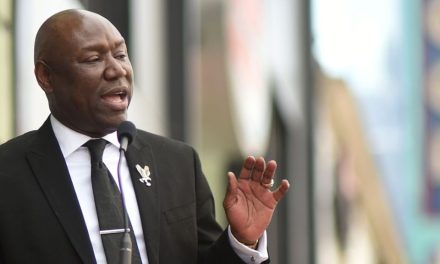By Drayton Nabers Jr.
(This is an opinion column)
As a former Chief Justice of the Alabama Supreme Court, I believe in our state’s criminal justice system. It’s not only that we have good laws and a strong framework for seeking justice. It’s also that the people who lead our system serve with honor and professionalism. That’s why I’m troubled by this question: Why is Toforest Johnson still on death row?
Mr. Johnson was convicted of murder and sentenced to death in 1998, twenty-four years ago, for the killing of Deputy Sheriff William G. Hardy in Birmingham. But over time, the State’s case has fallen apart, and there’s now substantial evidence that Mr. Johnson is innocent. Both the District Attorney in Birmingham and the lead prosecutor from Mr. Johnson’s 1998 case support a new trial. Yet our State continues to defend the conviction, and Mr. Johnson remains on death row.
We trust prosecutors to pursue criminal charges, to resolve cases, to present evidence, and to argue to juries. If we’re going to do all of that, we also should trust prosecutors when they say that we need to correct a mistake. And that’s what both the District Attorney and the lead trial prosecutor in Toforest Johnson’s case are saying.
To be clear, I support the death penalty in cases that warrant it. When I served as Chief Justice, I voted with my colleagues to uphold death sentences. But supporting the death penalty shouldn’t mean ignoring signs that a person on death row may have been wrongfully convicted. In fact, it should mean the opposite. If we’re going to use the power of the state to execute someone, we should do everything possible to make sure that the person had a fair trial and that the evidence proves his guilt.
So what was the evidence against Mr. Johnson? There was all too little. There was no physical evidence. No eyewitness testimony. No police confession. The State’s case relied entirely on a woman who said she overheard a three-way jail phone call in which a man who referred to himself as “Toforest” admitted to the crime. This woman had never met Mr. Johnson, and she didn’t know his voice. But her testimony was enough for the jury to convict.
It turns out that the woman was paid $5,000 for her testimony after the trial, which was never disclosed to Mr. Johnson or his lawyers. As for Mr. Johnson’s actual whereabouts at the time Deputy Hardy was killed, multiple witnesses have told the District Attorney in Birmingham, Danny Carr, that Mr. Johnson was across town and could not have committed the murder. DA Carr met with these witnesses, and he found them credible.
There are other red flags in the case as well. In various court proceedings, the police and prosecutors cycled through alternative theories as to who shot Deputy Hardy. Even after Mr. Johnson was convicted and sentenced to death on the theory that he shot Deputy Hardy, the State asserted a completely different theory in a separate case.
I commend the District Attorney and the lead trial prosecutor for supporting a new trial instead of defending a flawed conviction. This type of prosecutorial support for a person on death row is unprecedented to my knowledge, and I think it speaks volumes about the uniqueness of the case and the evidence.
Earlier this year, I joined other former Alabama judges in a brief urging the Jefferson County Circuit Court to grant a new trial to Mr. Johnson. Another brief in support of Mr. Johnson was filed by former Alabama prosecutors, including Bill Baxley, who was instrumental in bringing the death penalty back to Alabama when he served as Attorney General in the 1970s. As Mr. Baxley has written, “Johnson’s murder trial was so deeply flawed, the evidence presented against him so thin, that no Alabamian should tolerate his incarceration, let alone his execution.” I agree.
I continue to have confidence in our system, so I’m hopeful and optimistic that Mr. Johnson will be given a new trial soon. Then no longer will we ask– in a case in which the evidence is so problematic that even the District Attorney and the trial prosecutor support a new trial – why, after twenty-four years, is Toforest Johnson still on death row?
Drayton Nabers Jr. served as Chief Justice of Alabama from 2004 to 2006.











